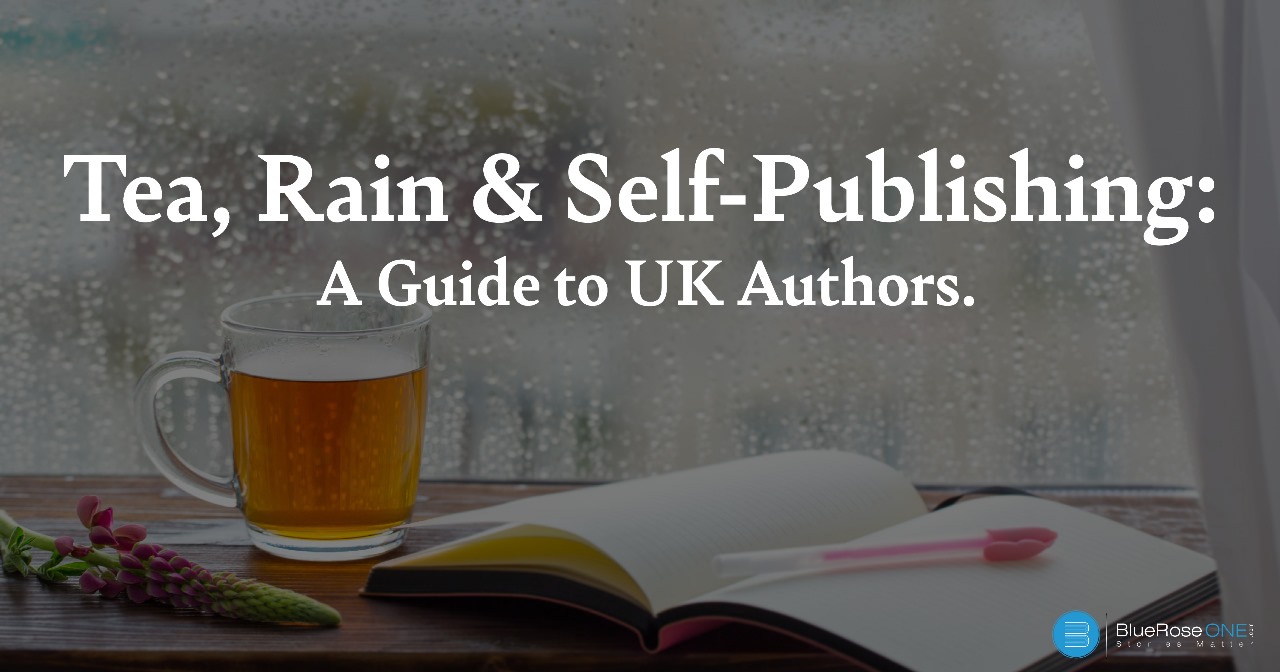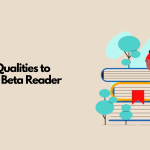The advent of self-publishing has revolutionised the publishing scene, giving authors more freedom to share their stories. For UK authors navigating the complex world of self-publishing, this thorough guide seeks to illuminate the process from start to finish. As we embark on this trip, we’ll look at the rewards, challenges, and practical processes that enable UK authors to self-publish their literary works.
The Rise of Self-Publishing in the UK
Traditionally, authors seeking publication faced the difficult job of finding a literary agency or attracting the attention of major publishing organisations. However, the rise of self-publishing has democratised the field, giving authors an additional way to reach audiences.
This transition has been especially noticeable in the United Kingdom, where an increasing number of authors are opting to self-publish in order to retain creative control and reach a wider audience.
- Benefits of Self-Publishing for UK Authors
- Creative Control: Self-publishing grants UK authors unprecedented creative control, allowing them to shape every aspect of their book. From choosing cover designs that reflect the essence of the narrative to making critical decisions about the storyline, characters, and tone, authors retain autonomy. An excellent example is J.K. Rowling’s release of the “Harry Potter” series through her own platform, Pottermore. This approach allowed her to maintain artistic control, ensuring the series’ visual and narrative elements aligned with her vision and contributing significantly to its global success.
- Speed to Market: One of the key advantages of self-publishing for UK authors is the accelerated speed to market. Unlike traditional publishing, which involves lengthy submission, review, and production processes, self-published authors can release their books swiftly. This agility enables authors to respond promptly to current events or trending topics. An illustrative example is Seth Godin’s “The Dip,” where the author opted for self-publishing to quickly address a relevant business concept. The book was released promptly, capitalising on the timeliness of the subject matter.
- Global Reach: Self-publishing leverages the digital age’s global accessibility, breaking geographical barriers for UK authors. Online platforms like Amazon Kindle, Apple Books, and others facilitate worldwide distribution, reaching readers in diverse locations. Amanda Hocking, a self-published author, exemplifies this global reach. Through digital platforms, she gained a vast international readership, proving that self-publishing transcends borders and allows UK authors to connect with a truly global audience. Know how to promote a book in the UK in 2024.
- Financial Returns: Self-publishing presents UK authors with the potential for higher financial returns compared to traditional publishing models. Retaining a substantial percentage of book sales allows authors to directly benefit from their works’ success. A notable example is Hugh Howey, who self-published his dystopian series “Wool.” The series gained immense popularity, and Howey’s financial returns surpassed what he might have received through a traditional publishing contract, showcasing the lucrative potential of self-publishing.
- Diverse Publishing Options: Self-publishing provides UK authors with diverse options, accommodating various reader preferences. Whether opting for print-on-demand services like CreateSpace or Kindle Direct Publishing for e-books, authors can cater to different formats. This flexibility is evident in Neil Gaiman’s decision to self-publish a limited edition of his book “American Gods.” This approach allowed Gaiman to offer a unique, collectible format for his dedicated fan base, showcasing the diverse options self-publishing affords authors.
You may also like: Top 10 Best Biographies of All Time
2. Challenges and Considerations
- Quality Control: Maintaining high-quality standards is the bedrock of a successful self-published book. UK authors should prioritise professional editing, cover design, and formatting to align with industry expectations. Investing in these services ensures that the final product meets the same standards as traditionally published books. For instance, hiring an experienced editor, like those available through services such as The Literary Consultancy or Reedsy, can refine the manuscript, enhancing its coherence and overall quality.
- Marketing and Visiblity: Self-published authors shoulder the responsibility of marketing, necessitating a strategic approach for increased visibility. UK authors can leverage social media, author websites, and promotional tactics to reach a broader audience. Engaging readers through platforms like Twitter, Instagram, or a dedicated author blog creates an online presence. For example, Andy Weir, author of “The Martian,” initially shared his work on his blog, building a reader base that contributed to the book’s eventual success.
- Distribution Challenges: While online platforms provide global access, securing placement in physical bookstores poses challenges for self-published authors. UK authors can explore print-on-demand services or collaborate with local independent bookstores to overcome distribution hurdles. For instance, utilising services like IngramSpark facilitates broader distribution, ensuring print copies are available on-demand without the need for extensive warehousing.
- Investment and Budgeting: Self-publishing involves financial investment, and UK authors must budget wisely. Allocating resources for professional services, marketing, and distribution is essential. For example, setting aside funds for a targeted advertising campaign on platforms like Facebook or investing in a well-designed book cover can significantly impact the book’s success.
- Building a Brand: Establishing a personal author brand is pivotal for long-term success in the competitive literary landscape. UK authors should invest time in creating an online presence through social media, author websites, and other platforms. Engaging with readers fosters a sense of connection and loyalty. For instance, crime fiction author Rachel Abbott has built a strong brand by interacting with readers on social media, maintaining a consistent authorial voice across her books, and creating a recognisable online presence. Building a brand ensures that readers recognise and trust the author’s work, contributing to sustained success over time.
You may also like: The Rise of Self-Publishing and What it means for Authors
3. Practical Steps in Self-Publising:
- Developing a Manuscript: Beginning with a polished manuscript is the cornerstone of a successful self-publishing journey for UK authors. Thorough editing and proofreading are paramount to ensuring a professional and engaging final product. This step involves refining the language, checking for consistency, and addressing grammatical errors. Authors should consider professional editing services to bring a fresh and expert perspective to their work. For instance, hiring a qualified editor may lead to enhanced clarity, improved pacing, and an overall polished manuscript that captivates readers from the first page.
- Professional Services: Investing in professional services elevates the quality of a self-published book. UK authors can enlist freelancers or specialised self-publishing services for tasks like editing, cover design, and formatting. A skilled editor can enhance the manuscript’s coherence, while a professional cover designer can create an eye-catching visual that entices potential readers. Proper formatting ensures a seamless reading experience, whether in print or digital format. For instance, services like Reedsy or BookBaby offer a range of professional assistance, allowing authors to focus on their strengths while ensuring the final product meets industry standards.
- Choosing the Right Platform: Selecting the right self-publishing platform is a pivotal decision for UK authors. Platforms like Amazon Kindle Direct Publishing (KDP) offer a vast reach, while IngramSpark provides broader distribution options. The choice depends on the author’s goals, target audience, and preferred distribution channels. For example, KDP is known for its accessibility and ease of use, making it a popular choice for authors aiming to reach a wide audience quickly.
- Understaning Rights and Royality: Authors must familiarise themselves with rights and royalties to make informed decisions about their work. While UK authors retain control over their intellectual property, understanding licencing agreements and royalty structures is essential. For instance, knowing the difference between exclusive and non-exclusive agreements can impact where and how the book is distributed. A clear understanding of royalties ensures that authors are fairly compensated for their creative efforts.
- Creating a Marketing Plan: Developing a comprehensive marketing plan is crucial for gaining visibility in the competitive literary market. Utilising social media platforms, creating an author website, planning book tours, and implementing promotional strategies are integral components. Engaging with potential readers through these channels builds a loyal audience. For instance, successful self-published author Mark Dawson utilises targeted Facebook ads and an engaging website to connect with his readers, fostering a community around his work.
- Navigating Copyright and ISBN: Securing copyright protection is vital for UK authors. Authors automatically hold the copyright to their work upon creation, but registering it adds an extra layer of protection. Obtaining an ISBN (International Standard Book Number) is equally important for cataloguing and distribution purposes. For instance, an ISBN uniquely identifies a book, making it easier for bookstores, libraries, and readers to find and purchase the author’s work. This step ensures proper recognition and tracking of the book in the publishing industry.
- Utilising Print on Demand-Services: Exploring print-on-demand services is a strategic move for UK authors looking to offer physical copies of their books without dealing with large print runs or inventory management. Services like Amazon’s CreateSpace (now part of Kindle Direct Publishing) or IngramSpark allow authors to print copies as and when orders are received. This on-demand approach is cost-effective and environmentally friendly, eliminating the need for authors to invest in a large stock of printed books upfront. For instance, an author can list their book on CreateSpace, and when a reader places an order, a single copy is printed and shipped directly to the customer, streamlining the distribution process and reducing waste.
- Building an Author Platform: Establishing an online presence is vital for UK authors seeking to connect with readers and build a recognisable author brand. This involves creating and maintaining an author website that serves as a hub for information about the author, their books, and upcoming events. Additionally, engaging with readers through social media platforms like Twitter, Instagram, or Facebook helps foster a community around the author’s work. Blogging or contributing to relevant platforms allows authors to showcase their expertise and personalities, further strengthening their brand. For example, J.K. Rowling, author of the Harry Potter series, has a dedicated website where fans can find information about her and her latest projects. Rowling also engages with her audience on Twitter, creating a dynamic online presence that contributes to her author brand.
- Monitoring and Adapting: Continuously monitoring book performance and adapting marketing strategies is crucial for the sustained success of UK authors. This involves keeping track of sales data, reader reviews, and engagement metrics to assess the effectiveness of marketing efforts. Authors should be adaptable and willing to tweak their strategies based on insights gained from monitoring. Responding to reader reviews, both positive and constructive, allows authors to understand their audience better and enhance their future writing and marketing endeavors. For instance, if a self-published author receives feedback about a specific aspect of their book, such as the cover design or pacing, they can use this information to adapt their approach in future projects or promotional campaigns. This ongoing process of monitoring and adapting ensures that the author stays connected with their audience and continues to refine their approach in the dynamic world of self-publishing.
You may also like: Insights from Bestselling Authors: The art of storytelling
Conclusion
Self-publishing empowers UK authors to share their tales, engage with readers, and establish themselves as literary voices. While there are hurdles, the benefits of creative freedom, worldwide exposure, and possible financial returns make self-publishing a viable alternative.
With a thorough understanding of the self-publishing process—from manuscript development to marketing strategies—UK authors can embark on a rewarding journey of literary independence. In a world full with various voices and tales, self-publishing stands out as a beacon of empowerment, allowing UK authors to add their own distinctive thread to the rich tapestry of global literature.








![Top 15 Best Post Apocalyptic Books You Must Read in [2025 Update]](https://blueroseone.com/publish/wp-content/uploads/2025/06/Top-15-Best-Post-Apocalyptic-Books-You-Must-Read-in-2025-Update-150x150.webp)







